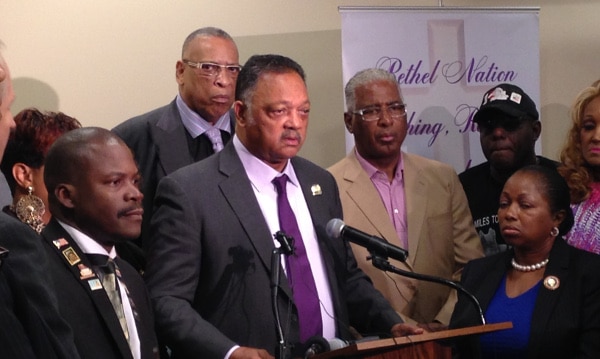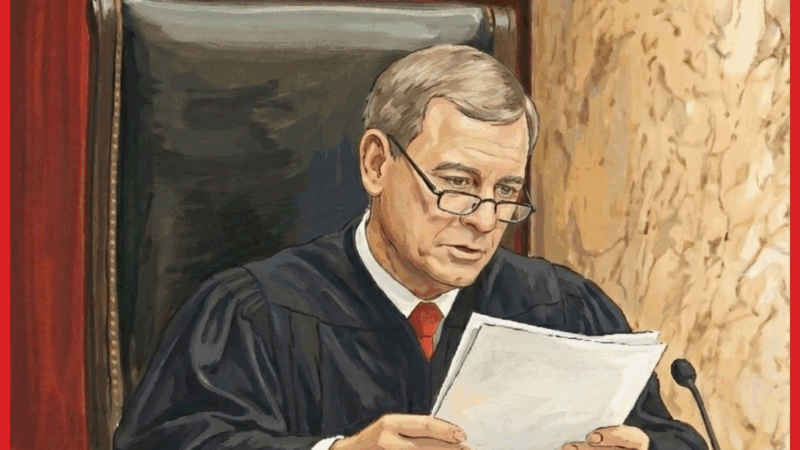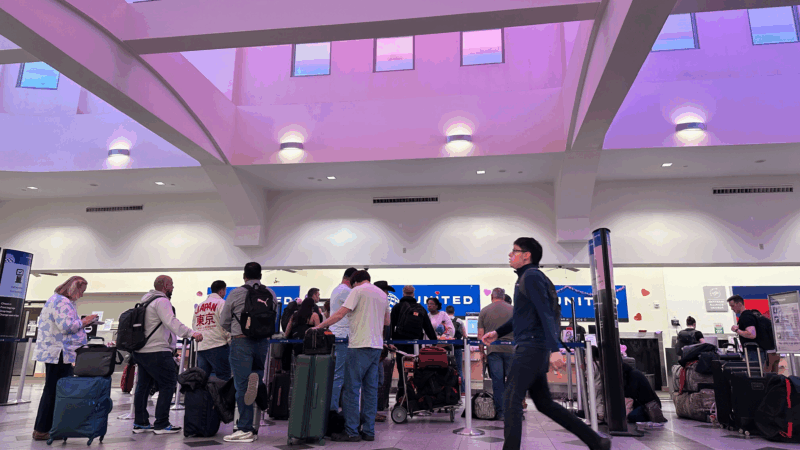Justice Department Called on to Investigate Alabama Voter ID Issue
Voting rights activists are protesting what they say is voter suppression in Alabama. The state suddenly closed 31 part-time driver’s license offices last week due to budget cuts. That leaves many rural residents without a place to obtain new driver’s licenses. Those licenses that double as IDs for voting.
Amanda Taylor has a 17-year-old daughter who doesn’t have her license yet. It used to be she could get that new license in Lowndes County where they live. But after the office closures, the family will have to take an 80-mile round trip to Montgomery.
“I just hate thinking about it,” said Taylor. “The idea of having to have to go to Montgomery …there’s going to be so many people.”
Taylor anticipates taking her daughter out of school and taking time off work to do it. She says not everyone around her can afford to take off work or pay for transportation to get there.
Lowndes County is rural, poor, largely African American and particularly hard hit by these closures. Wrapped up in this issue is voting. Alabama lawmakers passed a strict voter ID law in 2011 which took effect last year. It requires a state or federally issued photo ID to vote. The most common one is a driver’s license.
Critics of the closures say taking away 31 places where you could get an ID will keep people from voting.
At a press conference in Birmingham Wednesday, the Reverend Jesse Jackson isn’t shy about what he thinks of the state’s move.
“Of course this is the new Jim Crow,” said Jackson.
Jackson refers to the system of segregation laws once common across the South. He called on state leaders to reopen the driver’s license offices and echoed a call from Alabama’s only black Representative, Terri Sewell, for the Justice Department to investigate how the closures could affect access to the polls.
“This is really another impediment to make voting more difficult,” said Jackson.
State leaders say the response to the closures is overblown.
“The thing we have to understand is that we’re not making it more difficult to vote, we’re making it more difficult to drive,” said John Merrill, Alabama’s Secretary of State — the top election official in Alabama.
He says residents without a valid ID for voting can get a free one at every county board of registrars. He says the state has a mobile unit driving county to county to offer voter IDs. Merrill says they’ve been getting the word out.
“This has not changed anything or the way that we’re doing it. Because we already had the most aggressive, assertive, photo ID, voter registration effort, in the history in the history of the state,” said Merrill.
Alabama’s governor says the call for a federal investigation is “ill-informed.” He says the closures are not about keeping black people from voting. They’re a business decision to deal with budget cuts.
Raymond Johnson teaches at Samford University’s law school about the federal Voting Rights Act. It’s intended to make sure voters aren’t discriminated against by race. Johnson says if the Justice Department does investigate, he believes under that law, Alabama wouldn’t pass muster.
“I think they’re going to find that this is going to have a disproportionate impact upon minority voters in particular as well as the poor,” said Johnson.
He says if the Justice Department determined Alabama violated the law, the state would have to address it.
Lowndes County resident Amanda Taylor does think the office closures will discourage people from voting. But it won’t change the passion to vote.
“I tell my daughter don’t let that keep you from voting,” said Taylor. “People are going to have to just get out and just get it done. To do what you need to do.”
The question is whether these rural residents now face an undue burden in order to exercise their right to vote.
House GOP pushes strict proof-of-citizenship requirement for voters
House Republicans rushed to approve legislation on Wednesday that would impose new proof-of-citizenship requirements ahead of the midterm elections, a Trump administration priority that faces blowback in the Senate.
In blunt warning, the U.S. says Peru could lose its sovereignty to China
The Trump administration on Wednesday expressed concern that China was costing Peru its sovereignty after a Peruvian court ruling restricted a local regulator's oversight of a Chinese-built mega port.
U.S. ice dancers Madison Chock and Evan Bates win Olympic silver, in a stunning upset
Chock and Bates, four-time Olympians, were heavily favored for gold. But they lost by less than two points to a French duo who has been clouded by controversy involving their former partners.
AI brings Supreme Court decisions to life
Like it or not, the justices are about to see AI versions of themselves, speaking words that they spoke in court but that were not heard contemporaneously by anyone except those in the courtroom.
These monks’ walk for peace captivated Americans. It ends this week
A group of Buddhist monks walked from Fort Worth, Texas, to Washington, D.C., in the name of peace. The 108-day pilgrimage captivated Americans.
The airspace around El Paso is open again. Why it closed is in dispute
The Federal Aviation Administration abruptly closed the airspace around El Paso, only to reopen it hours later. The bizarre episode pointed to a lack of coordination between the FAA and the Pentagon.





